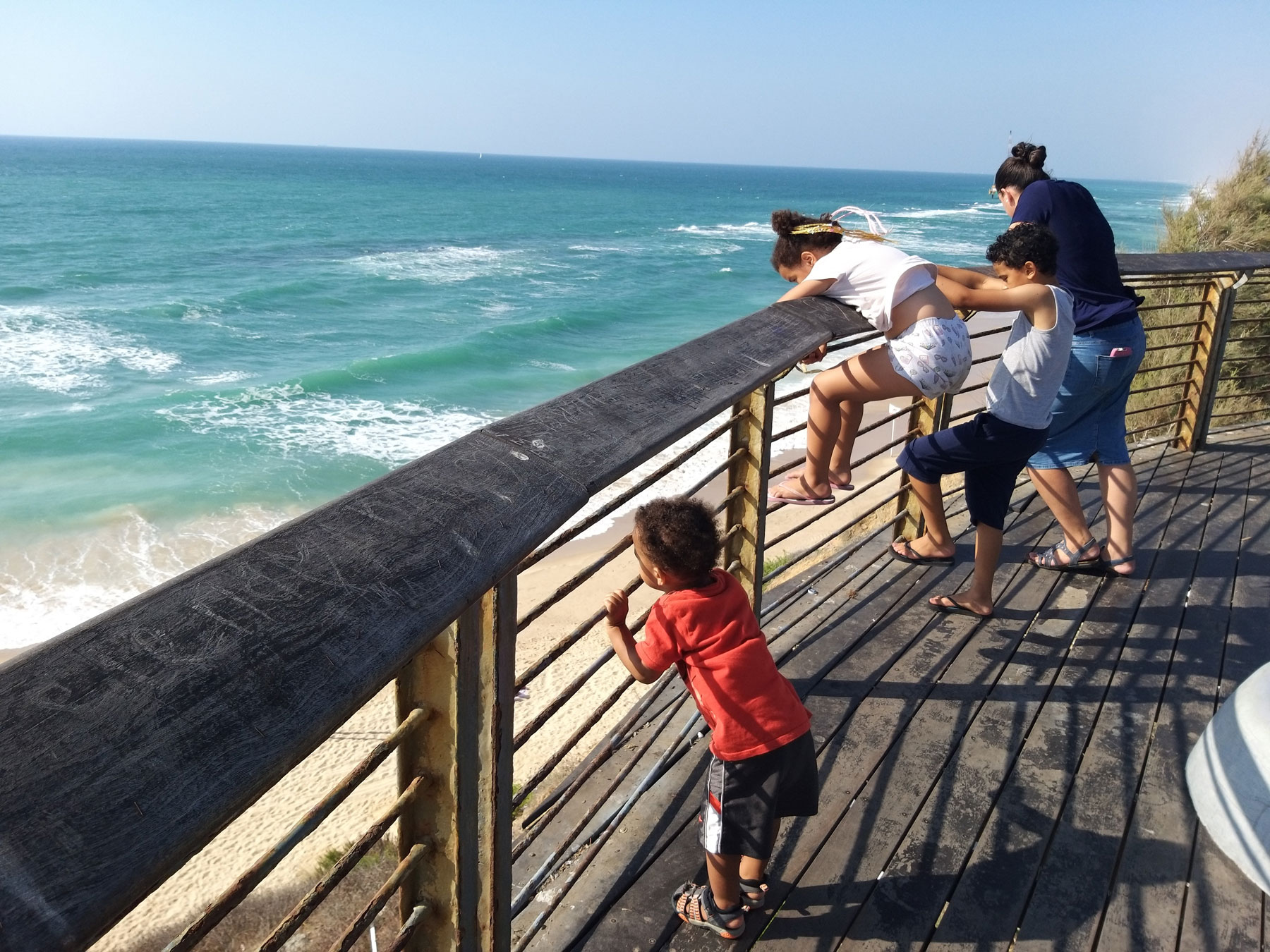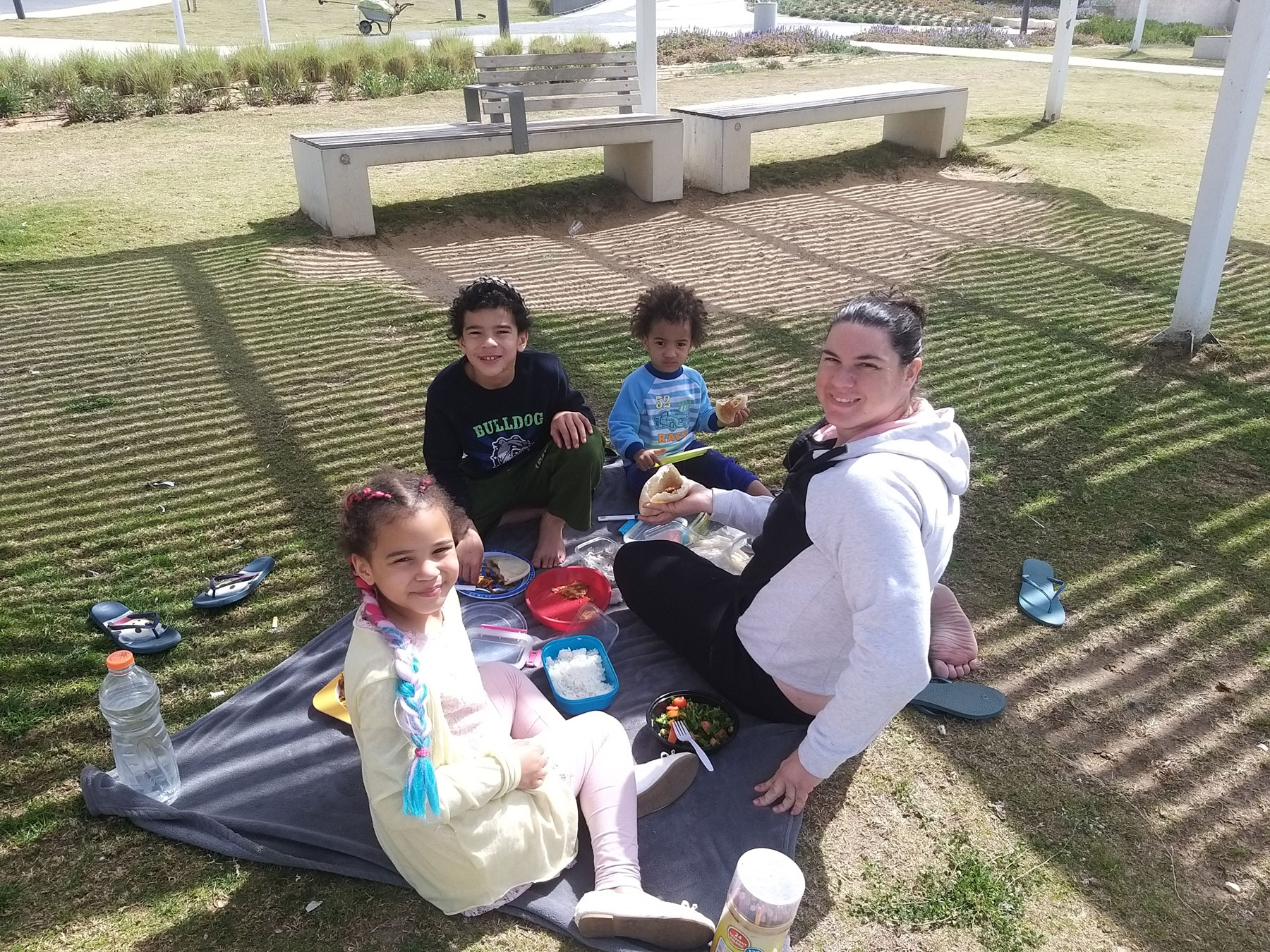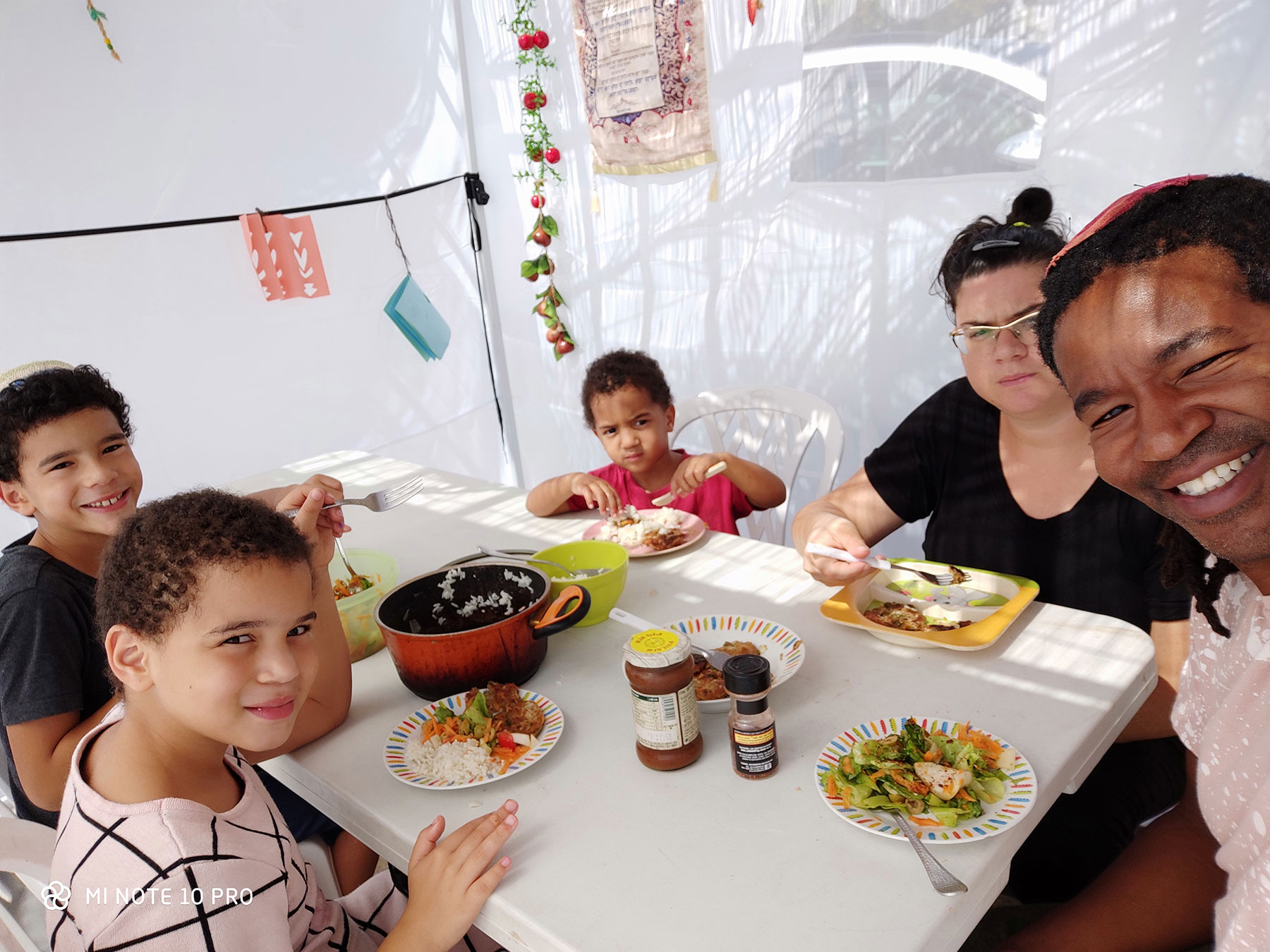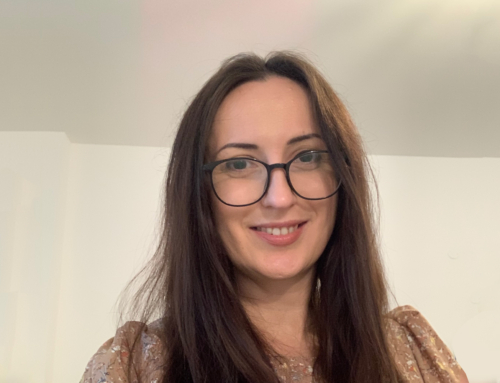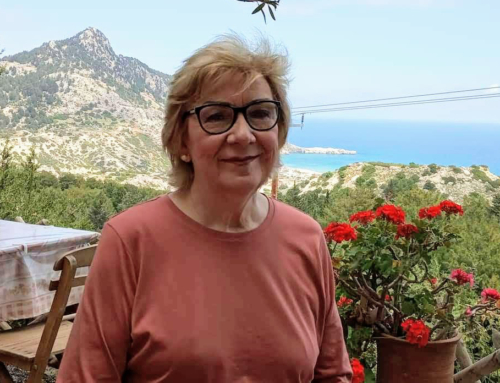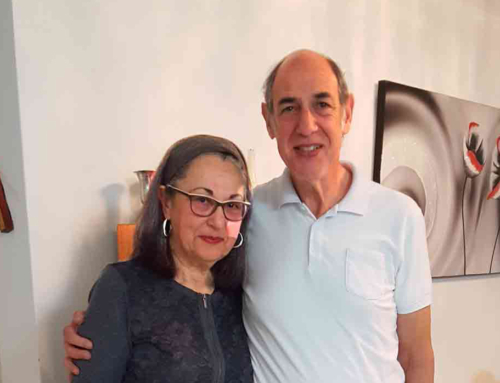Marvin and Oshrat
Marvin and Oshrat moved to Ashkelon in 2015. Marvin made Aliyah from the U.S. in 2007 and Oshrat was born in Israel. Prior to living in Ashkelon, they had been living in Ramla, a medium-sized city in the Shfela, located in between Lod and Rehovot.
As teachers (Marvin teaches English and dance, Oshrat also teaches English), one of the things that they were looking for was a solid educational system for their children. Their priority was a city where the educational needs of their kids would be met. After five years of living in Ashkelon, Marvin commented: “With three children; aged 9, 7 and 3, we are very satisfied so far. We were extremely disappointed with the educational system in Ramla, but our kids are very happy here. There’s a lot of support and communication from the teachers and staff and a lot of incorporation of varied learning styles.”
Ashkelon’s strongest draw for many people is that it is the last affordable seaside community close to the center. Marvin grew up in the landlocked American Midwest and always dreamed about living near the ocean. He sums it up in one short sentence: “I love the sea!” Marvin and Oshrat chose Ashkelon primarily because of the beach and the price of apartments. After they did their research, they found that Ashkelon was the least expensive option, close to the Mercaz, outside of a yishuv or moshav. Marvin commented: “I really don’t like the idea of living behind a fence or gates.” So, they bought an apartment in Neve Hadarim, a five-minute drive to the beach and spend a lot of time there, especially with the kids.
“Now that we have been living here for five years and really gotten to know the city, we can say that Ashkelon is not as stuffy as Tel Aviv and not as political as Jerusalem. It’s far enough from the center that real estate prices are still affordable, but not so far that you feel disconnected from family or friends located in the center,” Marvin explained.
Some people in Ashkelon describe the city as a “secret”. It is not on the radar of most Olim, as many people want to make Aliyah where there are mainly English speakers. Some feel that they are missing out on the full Israeli experience when they are living in an Anglo bubble.
While Ashkelon has a growing English-speaking community, it is certainly not like Bet Shemesh, Raanana or Jerusalem. Marvin’s Hebrew is very good but he says that “being fluent in Hebrew is not an absolute necessity, but a big help in Ashkelon. “
Making new friends and finding a comfortable fit in terms of community depends on the individual. Oshrat said: “There are a few budding/growing communities of many different backgrounds, but it takes some confidence to take the first step and break the interaction barrier. Luckily there are a lot of parks and playgrounds all over the city for parents to meet up at, and the marina/boardwalk is a wonderful place to meet people as well.”
Finding employment as English teachers for the couple was not very difficult. Marvin said: “Finding a position as a dance instructor was more challenging, since there aren’t that many dance studios here, but it is improving. Marvin and Oshrat both know people who commute to work. “The public transportation connections from city to city are really good and for the most part traffic isn’t a big issue. Tel Aviv is only 40 minutes away, on average, Jerusalem an hour,” added Marvin.
Anyone looking into living in Ashkelon sooner or later asks about security. Oshrat explains: “It’s not that bad. We’ve been through some rough spots, but we have a shelter at home and most businesses also have shelters. We normally have a warning from army intelligence the day before something happens, but attacks can happen anywhere in the country now. Plus, we have an Iron Dome, so the risk is much lower. “
Marvin sums up their decision to relocate to Ashkelon: “It really is a wonderful place. No matter where you are, there are pros and cons to your place of choice, but in Ashkelon, the pros definitely outweigh the cons. Our kids are happy, so we are too!”
